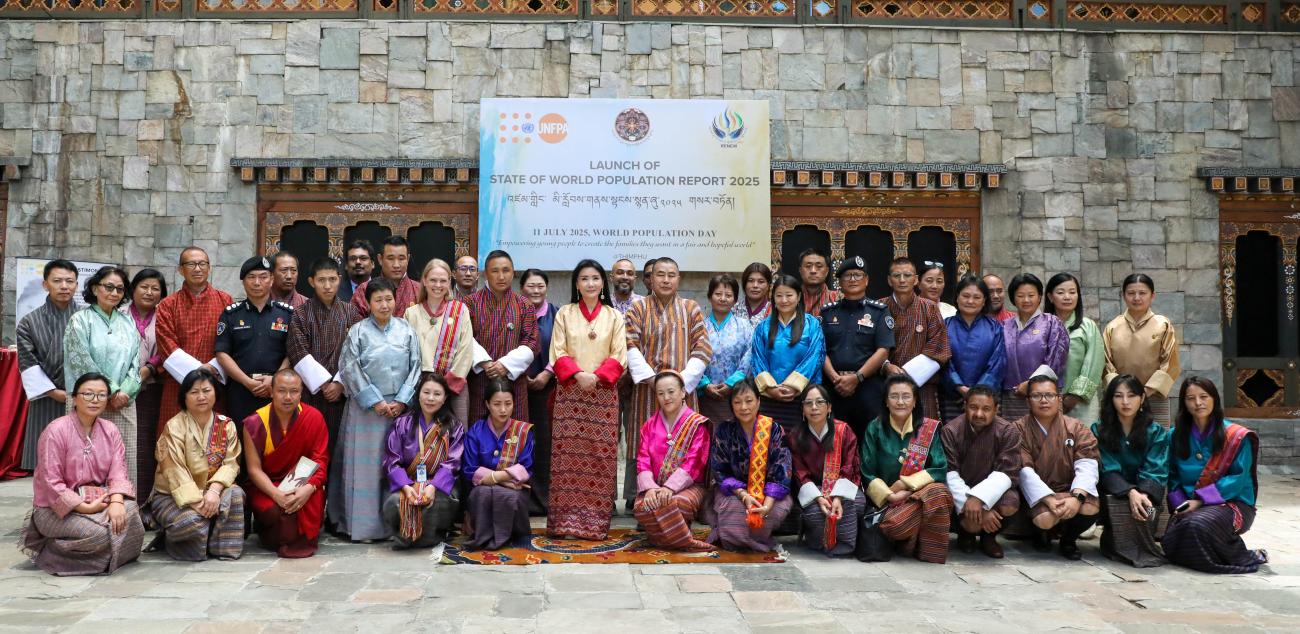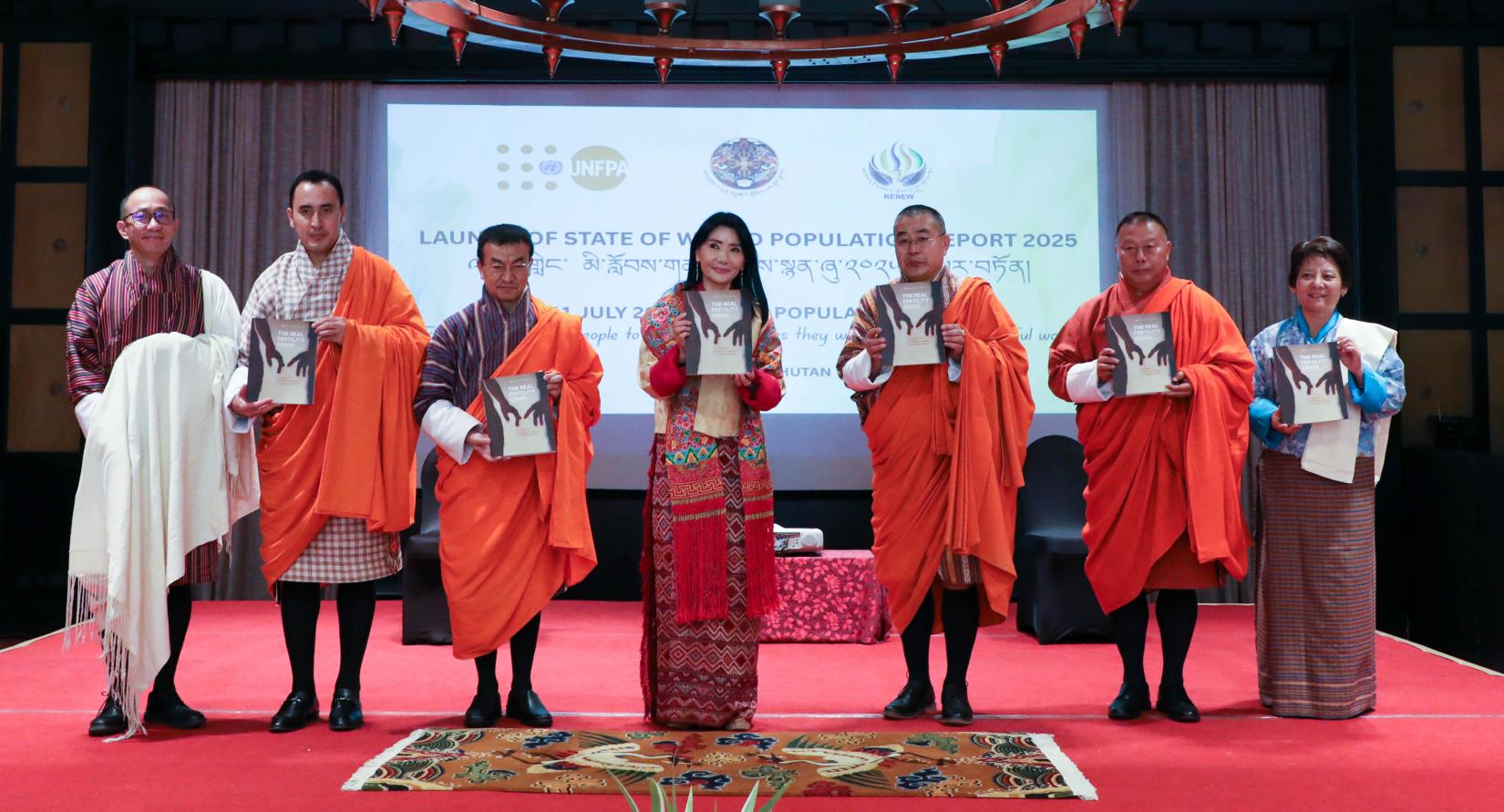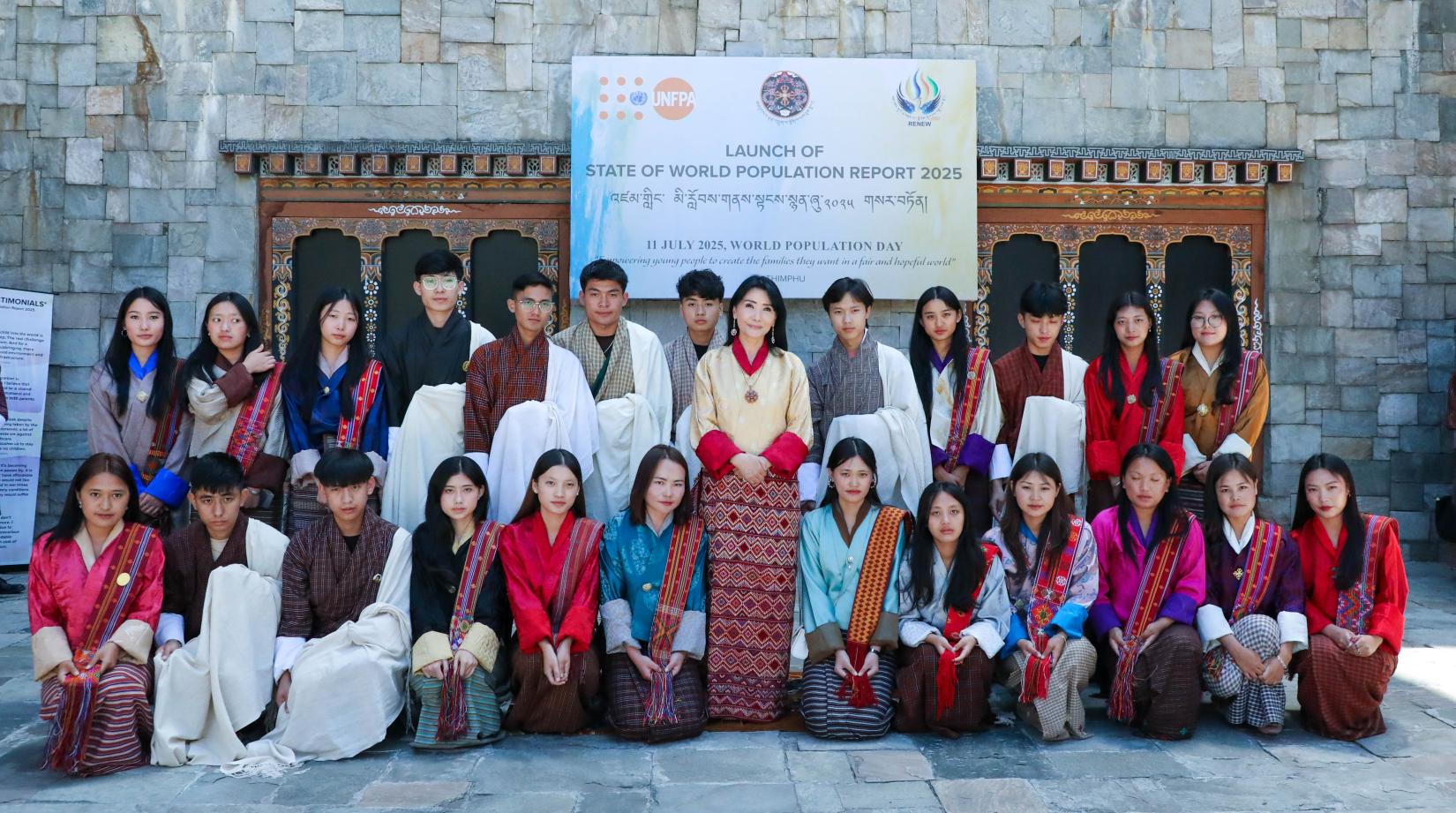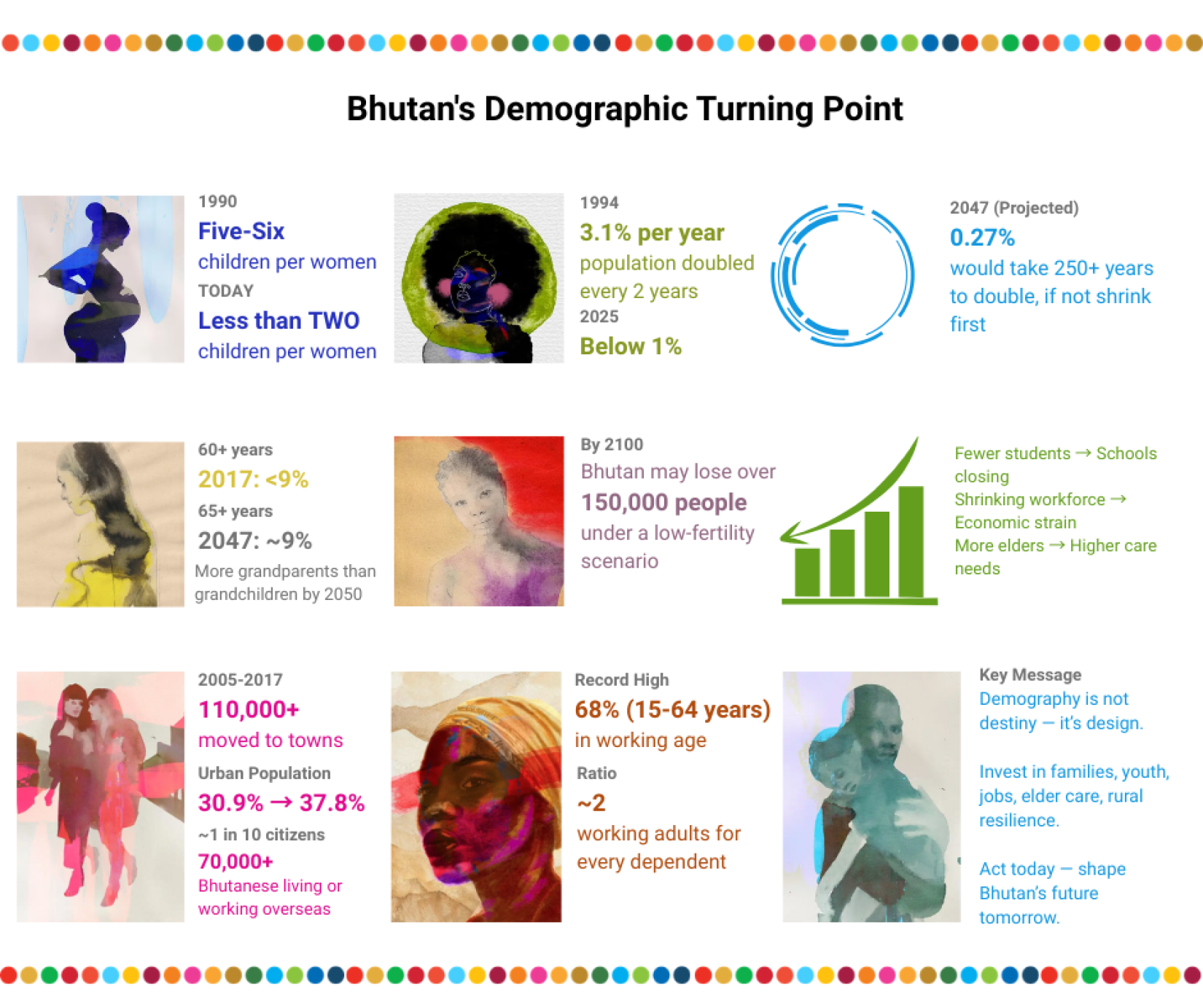World Population Day 2025: Bhutan Celebrates Reproductive Agency and the Power of Choice.

Bhutan observed the World Population Day with the story of a single Bhutanese family, anchored in old values but tugged in every direction by new realities.
Bhutan observed the World Population Day with the story of a single Bhutanese family, anchored in old values but tugged in every direction by new realities. Performed by Y-PEER, the powerful play “Echoes of Home” tells the story of Tenzin, a single father weighed down by debt. This is the story of Selden, an ambitious professional delaying motherhood for her career. New parents like Kinley and Wangmo, stretched thin by the daily grind of raising kids while chasing promotions, or just a little time alone. Then, there is Pema, a TikTok influencer who is craving freedom over expectations. Their stories collided and overlapped, frustrations spilling into hopes, capturing honest moment of how Bhutan's once predictable population story is being rewritten.
Through this intimate story on stage, the participants at the 2025 World Population Day were invited to look beyond statistics and see the real faces behind the trends. The play set the tone for a wider conversation on how deeply personal choices about marriage, children, work, and migration are shaping Bhutan's demographic future in ways that policies and plan must urgently address.
Graced by Her Majesty the Queen Mother Gyalyum Sangay Choden Wangchuck, the UNFPA Goodwill Ambassador, the event was organized by the Office of the Cabinet Affairs and Strategic Coordination, RENEW, and UNFPA Bhutan.

Not a Crisis of Numbers- A Crisis of Choice
A report titled “The Real Fertility Crisis: The Pursuit of Reproductive Agency in a Changing World” challenges prevailing narratives was launched during the event. The report states that fertility rates are falling in many countries, but not because people have stopped valuing families. In fact, the report reveals that most people, including those in low-fertility countries, want two or more children. However, nearly 1 in 5 adults say fears about the future- climate change, job insecurity, rising costs, are preventing them from doing so.
Bhutan’s trends mirror a global pattern: people want children but feel unable to meet their aspirations due to structural constraints. In 14 countries surveyed, together home to 37% of the world’s population, the findings
Reveal a powerful truth about the gap between people's hopes and their realities. Nearly one in five reproductive-age adults believe they cannot have the number of children they ideally want. Almost one in three have experienced an unintended pregnancy at some point in their lives. For many, money stands in the way of their family plans with 39% reporting that financial constraints have shaped how many children they could have. And nearly one in four shared that they felt unable to have a child when they truly wanted to. These numbers, taken together, tell a story not just about finding birth rates but about dream deferred and hidden barriers that keep people from building the families they hope for. Nearly 1 in 4 have felt unable to fulfil their desire for a child at their preferred time.
Dr. Natalia Kanem, Executive Director of UNFPA, states in the report:
“The answer lies in reproductive agency, a person’s ability to make free and informed choices about sex, contraception and starting a family, if, when and with whom they want.”
Bhutan’s Demographic Transition in Focus
Speaking at the opening of the event, Dasho Kesang Deki, the Cabinet Secretary, reflected on Bhutan's own demographic crossroads. Dasho reminded the audience that the country’s declining Total Fertility Rate and the trend of young people postponing marriage and parenthood are far more than just numbers, they reveal the difficult choices young Bhutanese face as they try to balance education, career ambitions, and the wish to start families in a fast-changing world.
Today, Bhutan’s Total Fertility Rate (TFR) has fallen sharply from an average five to six children per women in 1990 to fewer than two, a level below replacement. Meanwhile, the population growth rate has dropped from over 3.1% in 1994 to less than 1% today. Despite this slowdown, more than two-thirds of Bhutan’s people are still within the working-age bracket, placing the country in what experts call a “demographic golden hour”, a narrow window to harness the energy and potential of its youth before an ageing population overtakes growth.
The Cabinet Secretary highlighted the government’s commitment to preparing for this future, pointing to the 13th Five Year Plan, which aims to build a shock-responsive, inclusive, and comprehensive social protection system by 2029, ensuring that no one is left behind as Bhutan navigates this demographic shift.
A New Framing of Family Aspirations in Bhutan
UNFPA Bhutan’s Head of Office, Phuntsho Wangyel, reinforced this important shift in perspective by reminding everyone where the real answers lie.
“What can or must governments do? The report makes it clear: the solution is to expand choices for everyone. That means better access to reproductive health services and building environments where families can thrive,” he said.
On behalf of the United Nations in Bhutan, Phuntsho Wangyel commended Bhutan’s bold decision to adopt the “gap between desired and actual family size” as a national Key Result Area in the 13th Five Year Plan, a significant departure from the earlier goal of simply reversing the fertility decline. This, he noted, signals a more rights-based approach that places individual and family aspirations at the heart of national policy. For which, he added, it is important to rally behind people’s rights to decide freely and responsibly how many children to have, and when.
Adding urgency to the discussion, the Health Minister, Lyonpo Tandin Wangchuk reminded the audience that falling fertility rates do not mean families have lost their value.
“Fertility rates aren’t dropping because people no longer want families,” the Minister said. “They’re dropping because people—especially women—often feel they simply can’t afford the families they wish for. High living costs, lack of affordable childcare, job insecurity, and the absence of family-friendly policies make it harder than ever for couples to start or grow a family.”
Behind the Statistics, Human Stories
As the event came to an end, the audience was left with a powerful reminder that behind every statistic is a human story, a mother exhausted by unpaid care work, a couple struggling to juggle parenting without reliable childcare, a young woman carrying the weight of social expectations, and a youth deciding that leaving home feels easier than staying behind to fight exhaustion and uncertainty.

Chencho, a character from the “Echoes of Home” play, posed a question that lingered long after the event ended:
“What will we do today to make sure Bhutan’s homes are filled with laughter tomorrow?”
That question echoed through the National Statistics Bureau’s stark figures: a population projected to shrink after 2050, the share of elderly set to more than double from 5.9% in 2017 to 13.4% by 2047, more than 110,000 people moving from rural villages to urban centers in just over a decade, and over 70,000 Bhutanese already living or working abroad.


















